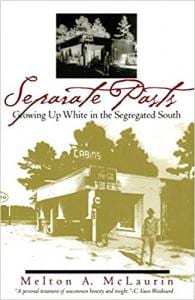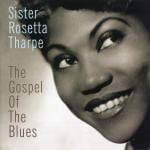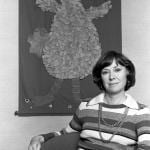Every few years I switch up the readings for my U.S. history survey course. Recently, a colleague suggested I assign Separate Pasts: Growing Up White in the Segregated South, a memoir by American historian Melton McLaurin. I have not been disappointed. Reading the book for class discussion this week, I was struck with the simple but profound lesson of McLaurin’s teenage years in the 1950s: spending substantive time getting to know “the other” is one of the most effective ways to break down prejudice.
McLaurin vividly recounts his experiences growing up in the segregated unincorporated village of Wade, North Carolina. Through the eyes of a teenage boy, we observe the entrenched racial, class, and gender dynamics of the village—dynamics he naturally took for granted at the time. But we also observe the striking individuality of each person he encountered. It was deeper personal encounters with individual African Americans that eventually made McLaurin question the town’s ways of life.
 One such relationship was with the retired black schoolteacher, Miss Carrie. After years of acquaintance, she eventually invited McLaurin into her home for pie—an invitation blacks rarely extended to whites, although black domestic workers frequently entered white homes. Inside he learned why. He was shocked to learn that the town’s black houses were not just scaled down versions of the white houses. Unjustly, even the few professionals among the village’s African Americans barely lived above abject poverty.
One such relationship was with the retired black schoolteacher, Miss Carrie. After years of acquaintance, she eventually invited McLaurin into her home for pie—an invitation blacks rarely extended to whites, although black domestic workers frequently entered white homes. Inside he learned why. He was shocked to learn that the town’s black houses were not just scaled down versions of the white houses. Unjustly, even the few professionals among the village’s African Americans barely lived above abject poverty.
One of McLaurin’s most transformative relationships was with a black Jehovah’s Witness named Street. Street was far more intelligent than most of the town’s inhabitants, white or black, but through poverty and race had been denied access to an excellent education. Nevertheless, he read and retained everything he could get his hands on, and out-argued almost all the traditionally Protestant town folk on matters of religion. It did not take too long for McLaurin to realize Street had a more active, questioning mind than his “granddaddy’s” circle of white friends who gathered to shoot the breeze each night. McLaurin had an unusually active mind himself—he grew up to be a professor—so it shook his racial assumptions that one of the few kindred spirits he recognized in the village happened to be black.
Once, Street recounted a story about witnessing to a white woman who thought he was supporting his religious claims with an altered “Jehovah’s Witness” Bible. He was, of course, simply interpreting the same text differently. So he said they could use hers instead. When he pointed to a passage in her Bible that he argued supported his point, she was horrified: she assumed she had accidentally gotten a “Jehovah’s Witness” Bible herself! So she burned it. Street clearly pitied her ignorance. It came as a shock to McLaurin that a black could pity a white—could rightly understand that he was superior in some ways. Not only did McLaurin recognize Street’s intelligence; it turned out Street recognized it too.
McLaurin’s assumptions about how blacks viewed whites were further undercut one day when talking with one of Wade’s rare fellow Yankees fans—who happened to be black. This man, Jerome, let slip that he was grieved that the Yankees had not hired a black man sooner. Another day McLaurin overheard a black woman named Dora Lou, who was cleaning a store bathroom, tell her son to pocket some money he had found rather than turn it over to the white store manager—because white people already had enough. It turned out that African Americans were not as content with the way things were as McLaurin had been led to believe.
McLaurin met all these people because he worked in his grandfather’s store, which serviced the entire town, both white and black. His unusual teenage occupation gave him the opportunity to develop relationships with the store’s regulars that would not otherwise have been possible. Deeper exposure to people who were different than him was what ultimately undid his prejudice. McLaurin realized his beliefs didn’t fit his lived experiences.
I often find myself talking with friends with limited knowledge of the challenges faced by certain groups of Americans today, be they African Americans, rural Republicans, or immigrants. As an American historian, I have had the opportunity to become more attuned to many of these challenges because my profession investigates the historical underpinnings of present realities. If I believe a friend has made a dismissive or harsh judgment about a group, I will ask that person what his or her friends in the group in question think about the issue. Almost always my friend does not have a close friend in the category about which he or she is making claims. This is only human. I know I sometimes fall into this trap myself. It’s worth reflecting on McLaurin’s story and asking ourselves where forging friendships with those who are different might alter our outlook.













